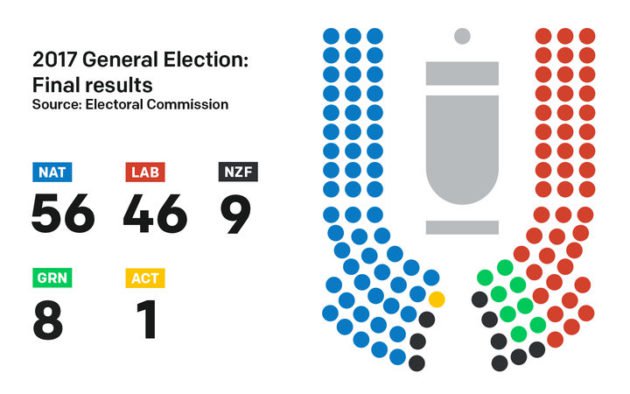by The Blonde
Twenty-three years ago in 1996, a totally new voting system was introduced called Mixed-Member Proportional representation.
It was like a smack on the head. People were reeling and gob-smacked trying to get their heads around the way this new system worked. I often wonder how many people still don’t really understand how it works. A lot of voters seem to see their party vote as something to ‘spray around’.
I recall being told that the party vote was your most important vote as it went to the party that you wanted to be in power. Your party vote is important because it decides the share of the 120 seats in parliament that is allocated to each political party. A party’s share of seats is filled, first by the candidates who win electorate seats, then by candidates from the party list.
Your electorate vote goes to the candidate of your choice in your electorate. There … simple, easy to understand. But, and a big BUT, if your preferred party has not received sufficient party votes, it will not be in power and your local candidate will be in opposition with very little clout. I repeat … your party vote is your most important vote. Need I say it again?
Personally, I have found that, in most elections, in order to get my desired outcome it has had to be ‘two ticks blue’.
The 2017 election is a prime example of things going horribly wrong for supporters of the right. National received 44.4% of the vote. A few people held a grudge against National for a couple of decisions they had
made … in hindsight, these were unimportant decisions compared with some of the disastrous on-the-hoof decisions made by the present government-of-choice.
People were persuaded to vote for a support party to ‘teach National a lesson’; and we all know how that turned out, don’t we? Sometimes we have to hold our noses and vote for the party we believe will be the best for our country, even if we are not totally in love with them.
However, who would have believed that Winston Peters would go with Labour? He has been very difficult at times in the past but I, for one, would not have believed it. Unfortunately, his desire to be important overcame his political nous.
Governing under MMP demands stable and predictable relations between political partners and unfortunately, Peters is not in the habit of providing either in the long term. Winston Peters appears to have turned his guns on National, big time, but, as he is historically unpredictable, who knows how he will behave in the next 14 months … all in his own interest, of course.


